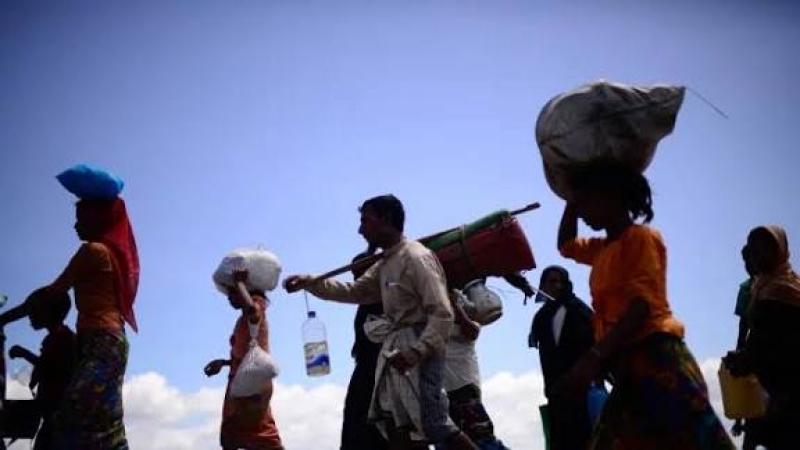- Middle East War Puts Bangladesh Jobs at Risk |
- Starmer criticises Trump, defends UK position not to allow use of its bases |
- Iran War: Nuke watchdog urges restraint amid ongoing strikes |
- 80pc tube wells in Chhatak run dry; water crisis acute |
- Advance Eid train ticket sale begins |
US pledges support for Myanmar, Rohingya

US Special Envoy for Best Future Generations Charles Harder has said the United States will continue to support the people of Myanmar, including Rohingya and other minorities, and urged other donors to join them in this effort.
"Increased contributions are vital to ensure dignity, safety, and hope for vulnerable populations. This is fundamentally not a responsibility of the U.S., and we will not be the primary provider of assistance while others sit by," said the Special Envoy.
Harder, while speaking at high-level conference on the 'Situation of Rohingya Muslims and Other Minorities in Myanmar' held at the UN General Assembly on September 30, said this is not a burden the United States will bear indefinitely; it is long past time for other governments and actors in the region to develop sustainable solutions for Rohingya.
All nations, organisations, and private donors must step forward and share the burden by increasing their contributions, said the Special Envoy.
The scale and complexity of this crisis make it clear that no single country or entity can do it alone.
To underscore the US commitment in saving lives and providing critical assistance where needed, Harder announced the intent to provide more than $60 million in assistance for Rohingya refugees in Bangladesh.
"With this, we expect meaningful policy changes by Bangladesh to allow livelihood opportunities and by aid organisations to increase cost efficiency," Harder said.
The United States expressed its support for Rohingya and other Myanmar minorities who have been victims of repression and violence.
"Survivors of that persecution are here with us today. I commend their bravery in speaking out," Harder said.
The US thanked the government of Bangladesh, as they have shown generosity and compassion in hosting Rohingya refugees, many of whom fled a campaign of genocide and crimes against humanity perpetrated by Myanmar’s military.
"We also thank Thailand for its steadfast partnership, including its recent decision to grant Myanmar refugees permission to work," Harder said.
Unfortunately, the Special Envoy said, Myanmar’s military regime continues to escape accountability for their atrocities. "They continue to oppress minorities, bomb civilians, and use child soldiers."
Harder said they are deeply concerned about reports of ongoing atrocities and forced displacement, particularly in Rakhine State.
The US called on all armed actors, including the military regime and the Arakha Army, to protect civilians, allow humanitarian access, and adhere to international humanitarian law.
Despite ASEAN and UN efforts to create conditions for dialogue, violence and instability have only worsened, Harder said.
The regime is moving ahead with an election plan that excludes the most popular and representative political parties.
"This plan will not address the legitimate aspirations of Myanmar’s ethnic groups. We reject these elections under current conditions," Harder said.
"Our goal is a future in which all people of Myanmar can live in safety, dignity, and peace. Our focus now should be on a ceasefire, a genuine dialogue, which is critical to shape the country’s future," said the US Special Envoy.
Meanwhile, the United States has committed to taking international efforts to provide humanitarian assistance for Rohingya refugees.
"We must review assistance to eliminate overlap, inefficiencies, and redundancies. We must maximise local solutions and minimise expensive overhead costs," Harder said.
Burden-sharing and increasing efficiency are strategic necessities, said the US Special Envoy, reports UNB.
"By working together, the international community can strengthen collective efforts to address the root causes of displacement, support durable solutions, and prevent further instability in the region," Harder said.

